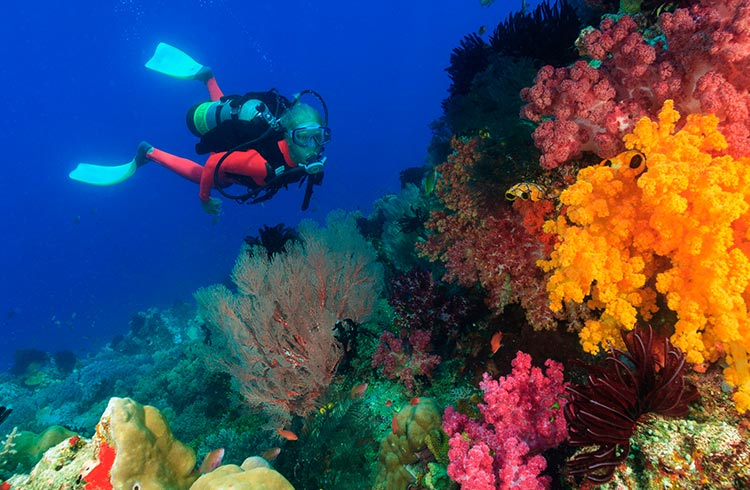Scuba diving presents an exhilarating opportunity to witness the wonders of the marine world firsthand. It offers moments of immersion in the vibrant and inviting waters of tropical locations, where a kaleidoscope of colorful fish gracefully swims by. It's a chance to unravel the long-held mysteries of the underwater realm. Yet, akin to any sport, adhering to specific guidelines is crucial for a safe return to shore. Firstly, obtaining certification from a reputable scuba diving school is imperative. Secondly, ensuring fitness for diving and acquiring proper scuba gear are essential steps—reliable gear significantly contributes to a successful dive. Thirdly, maintaining proximity to your guide and diving companion is paramount, as wandering can pose significant risks. Therefore, here are some essential tips to consider before embarking on this adventure.
Diving with a certified operator holds paramount importance when engaging in scuba diving activities. Thoroughly researching diving operators in your destination is crucial, ensuring they are well-established and possess extensive experience in scuba practices. Typically, certified companies offer comprehensive websites detailing tour information, their operational methods, brief profiles of guides, and available training sessions. For instance, Salty Endeavors emphasizes their training programs and passion for diving, aiding beginners in mastering this skill and fostering an exceptional initial diving encounter. Additionally, your safety relies not only on the expertise of the diving team but also on the quality of rental equipment. Hence, these operators also provide top-notch, professional gear to guarantee a secure and enjoyable diving experience.
Don't hold your breath, just try to breathe normally.
When you first go underwater, your natural instinct might be to hold your breath. However, when scuba diving, it's crucial not to do this because it can harm you. Scuba diving itself might feel strange because you're doing something that seems impossible: breathing underwater. But with the right gear, you can breathe normally. It's extremely important to always keep breathing and never hold your breath while diving. This is because holding your breath can lead to a serious injury called an air embolism. This happens when air bubbles enter your bloodstream and can be very dangerous, sometimes even deadly.
Remember to Equalize
Think of it like being on a plane. As you go down, the pressure in your ears changes. So, it's important to remember to equalize your ears. Make sure to do this regularly, especially before you start feeling any pain. By doing so, you'll prevent any harm to the inner ear, which plays a crucial role in maintaining coordination and balance in your body.
Keep Track of Your Guide and Diving Partner
It's risky to be underwater without company. The marine environment is teeming with life and unexpected wonders. So, resist the urge to swim off alone whenever something captivating grabs your attention. Instead, signal your guide and diving partner, and explore it together. Staying close to your guide and buddy is crucial for your safety and navigation. It's also important to monitor each other's oxygen levels and equipment, especially in areas where visibility is limited. However, if you get separated during the dive, take a minute to search for them. If you still can't find them, it's best to ascend to the surface and look for them there. Chances are, they might be doing the same thing.
Avoid Interacting with Underwater Life
While diving, it's crucial to resist the urge to touch anything, regardless of how attractive it may seem. There are several reasons for this caution. Corals, for instance, can be extremely sharp and cause severe injuries. They also pose a risk of damaging your diving equipment. Additionally, many sea plants are highly toxic, leading to rapid muscle spasms without much time for you to react and protect yourself. Furthermore, marine creatures can be unfriendly, and some may bite if touched.
Adhere to Depth Limits
Before embarking on your scuba dive, ensure that all your gear is properly set up and functioning. It's recommended to utilize a diving instrument to monitor your diving depth. Avoid descending beyond 40 meters or 130 feet.
Scuba diving presents an exhilarating opportunity to witness the beauty of the underwater world, teeming with life and mysteries. By adhering to the aforementioned guidelines, you'll ensure a safe and enjoyable experience without harm.






Comments (0)